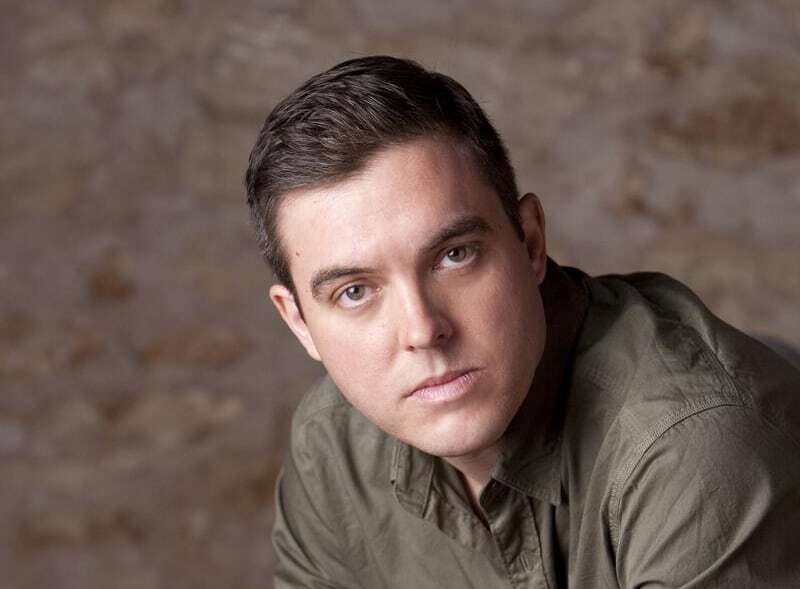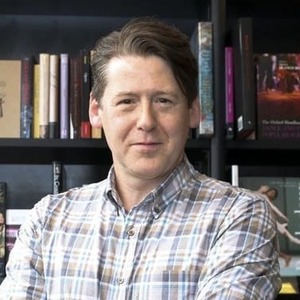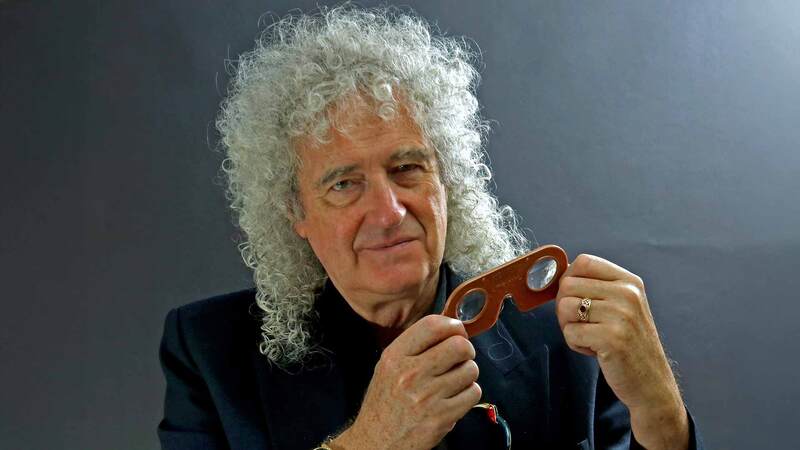You are viewing your 1 free article this month. Login to read more articles.
Kevin Powers | ‘I’m interested in violence and how it affects individuals, particularly violence that promoted and supported an injustice’
“I’m never going to go back and be a person that hasn’t been to war.”
Kevin Powers is talking broadly about his work, his latest book, Letter Composed During a Lull in the Fighting (Sceptre, April), his experience of having served in the United States Army during the Iraq War and how combat has informed his writing. “It took two or three years to adjust to civilian life. The immediate effects when I first came home were responses to the noises and environment—you are still reacting to things with an emotional intensity which you don’t need in civilian life. That fades but, like a scar, it’s always there.”
Powers is conservatively dressed in jeans, jacket and a tie—there is a faint air of a guy from the accounts payable office on dress-down Friday—and he says this in his soft, measured voice, which only contains the barest drawl of his native Virginia. He is thoughtful, polite and wryly funny but there is a certain reserve; he seems to have channelled all his intensity into his writing, first with The Yellow Birds (Sceptre), his début which won the 2012 Guardian First Book Award, the Hemingway Foundation/PEN Award (an American prize that also recognises first novels) and was a finalist for the US National Book Award. A grunt’s-eye view of the emotional toll of the Iraq War experience, it has been compared favourably to war novel classics such as Norman Mailer’s The Naked and the Dead, Tim O’Brien’s Vietnam epic The Things They Carried and, perhaps inevitably for a great war novel, Erich Maria Remarque’s All Quiet on the Western Front.
The war poems in this collection and The Yellow Birds, I guess, are about answering questions
Many critics remarked on the spare, poetic quality of Powers’ prose, so it is perhaps not surprising that he regards himself first and foremost as a poet. In fact, it was a childhood Damascene moment that made him “self-identify as a poet”. “I remember reading Dylan Thomas for the first time when I was 12,” he says. “I’m sure I was made to read people like [Robert] Frost when I was in school but I remember the very moment I was reading Thomas’ poems in a bookstore—as a kid, my mother would bring me to this bookstore every Sunday—buying the book and later that night trying to write a poem. I’ve been writing poetry fairly steadily since.”
Powers calls himself “a sometimes war poet” and his new collection, Letter Composed During a Lull in the Fighting, certainly has its fair share of the soldier experience, including the heart-breaking title piece. Yet it is more a Home Front book concerned with the after effects of war, and many are non-war poems dealing with love and loss.
The war pieces themselves share a sensibility with The Yellow Birds in that they are often small slices of life searing with feeling, which bring soldiers face to face with the dehumanising aspects of being in combat, such as one gut-wrenching poem in which the narrator is ordered to go and shoot stray dogs who are coming too near the base.
“The war poems in this collection and The Yellow Birds, I guess, are about answering questions,” Powers says. “My friends, family and people I met after I left the Army didn’t really want to talk about the wider issues, the geopolitics. They wanted to know about the emotional experience of being there. What is it like on a human, individual scale?” The poetry collection, of course, with the best will in the world is not going to reach the same wide audience as The Yellow Birds. Powers smiles and nods. “The sales of poetry books is an issue poets think about quite regularly, I can assure you.”
He has a few theories why poetry does not sell well: the experimentalism of a lot of 20th-Century poetry made the form less accessible and “maybe put a couple of generations off”, but it largely comes down to how it is taught. “It seems to me that it’s often introduced in school as a chore; assigned reading is the least enjoyable path to discovering poetry. But if you can get people at the right time, introduce it in the right way, you can get them in. I’m not too worried about the form; it has been around a long time.”
I’m interested in violence and how it affects individuals, particularly violence that promoted and supported an injustice. And I think there are some parallels from when I was in Iraq to immediately after the Civil War, when society was changing, reinventing itself
Powers grew up in Richmond, Virginia, in a “solidly middle-class” family (in the American sense; Brits might view his background as closer to working class). His father worked for the tobacco giant Philip Morris, his mother was a postal worker. The reason he joined the military at 17 was rather straightforward: “I was a harmless but borderline juvenile delinquent, a ne’er-do-well. I knew I had the ability to go to college but I wasn’t a good student in high school. I wasn’t interested in it.”
The Army, then, would give him some discipline and money for when he left to eventually go to university. He notes, with a somewhat wry smile, that he joined pre-9/11. “That was in 1998. I didn’t really know what I was getting into.” He served for six years, including a year in Iraq. After being discharged, he worked in construction jobs with his brother, then for a credit card company before going to Virginia Commonwealth University, where his love of writing was rekindled. “I had written as a kid, written during the time I was in the Army. But I did some classes where it was the first time I had shown my writing to other people, and was encouraged.”
He then went to do a Creative Writing MFA at the well-respected Michener Center at the University of Texas. “There are pros and cons to creative writing courses,” he says. “But basically, I knew it would give me two to three years to just write, a chance I might never get again. And I worked my ass off.”
He is returning to his native Richmond for his next project, a novel which takes place after the end of the American Civil War and revolves around the murder of a former plantation owner. “It’s not the most obvious transition from what I have been doing before. But I’m interested in violence and how it affects individuals, particularly violence that promoted and supported an injustice. And I think there are some parallels from when I was in Iraq to immediately after the Civil War, when society was changing, reinventing itself. There certainly were a lot of carpetbaggers in Iraq.”
CV
1980: Born in Richmond, Virginia
1998: Joined the US Army, served for six years
2004: Deplaued in Mosul, Iraq, as a machine gunner
2006-2012: BA from Virginia Commonwealth University; MFA in Creative Writing from The Michener Centre for Writers, University of Texas
2012: THe Yellow Birds published. Wins the Guardian First Book Award and Hemingway Foundation/PEN Award










